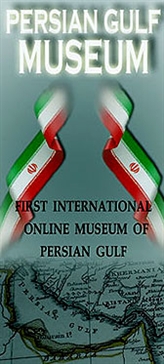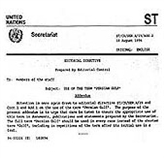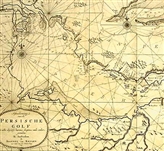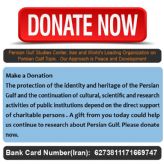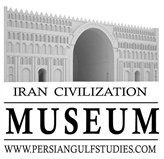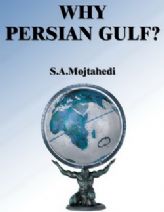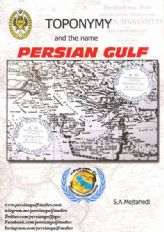Struggle for leadership in the Middle East enters a decisive phase
Date: 8/4/2018 1:30:24 PM
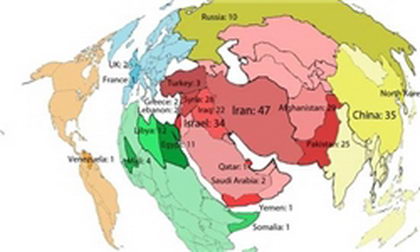
Struggle for leadership in the Middle East enters a decisive phase
Vladimir Efimov,
After coming to power of President Hassan Rouhani more Middle Eastern analysts pay attention to the growing Shia factor in the Middle East. And more often heard concerns in the West and in Israel that "Shia crescent" will turn into a full moon, and the West will lose their former allies in the Middle East. Indeed, now in this region is experiencing an event of historic proportions. And all the more obvious that the U.S. and its allies are unlikely to come out victorious from this. For example, no matter what kind of government will eventually come to power in Egypt, its strategic alliance with the West will be eroded. And no matter how strained Saudi Arabia and the Arabian vassals against Syria and Iraq, they still lose, and ultimately their own revolution swept away. And in the emerging conditions power center in the Middle East are increasingly moving towards Tehran. But there is still to be the decisive battle between Iran and Saudi Arabia.
It all began with the U.S. occupation of Iraq in 2003, which eventually led to the fact that for the first time in the history of Arab power in one of them, and one of the most influential, was transferred to the Shiites. Already in 2004, Jordan's King Abdullah IIvoiced thesis about the dangers of education for the Arab States "Shiite crescent" or, as he put it, "Shiite arc" from Iran through Iraq to Syria and Lebanon. It came not only from what happened in Baghdad, who fell through clumsy actions of the U.S. sphere of influence in Iran, but also from the indisputable fact that the territory of many Arab states - mostly Sunni and Wahhabi - Shiite minority, which is regarded by local rulers in as a "fifth column" and "traitors" who are in the service of Iran.
Since the publication of Wikileaks about U.S. policy in the Middle East, it became clear that the fear of the real possibility of forming a "Shiite arc" and the further development of the Iranian nuclear program was main concern of the ruling monarchist and pro-Western regimes in the Middle East. Back in 2005, when Mahmoud Ahmadinejad became president of Iran, representatives of the military circles of the United Arab Emirates cautioned that the Iranian leader is "crazy." Crown Prince of Abu Dhabi,Mohammed bin Zayed Al Nahyan described the possibility of a nuclear-free emergency war with Iran as the "most plausible alternative in comparison with far-reaching implications of a nuclear-armed Iran." King Abdullah of Saudi Arabia repeatedly urged to attack Iran to "cut off the head of the snake."
Today, the confrontation between the United States and its Arab allies, on the one hand, and Iran and its supporters - the other can be found in many local conflicts in the region. In Syria, Iraq, Lebanon, Yemen, Palestine, political forces, whether Sunni or Shiite, consolidated around two poles, the centers of which are, respectively, Washington and Tehran.
Egypt is the most populous and militarily powerful Arab state, at one time played a key role this confrontation. Therefore, the current weakening of Cairo as a result of "Arab revolutions" means reducing the influence of the West in the region. Not even by accident, Israeli Prime Minister Benjamin Netanyahu immediately after the start of the unrest in Egypt, spoke in support of the Egyptian president. After all, even a small change in policy in Cairo could have huge implications for the entire region. And so it happened. And for this he did not have an alliance with Tehran. It was enough to Egypt ceased to act in the interests of Washington. While in Iraq, Turkey, Lebanon, Palestine and Western allies also lose their positions. If the situation will continue to emerge in this way and the key countries in the Middle East - Iran's allies, or simply anti-American forces will dominate the region, it is really "Shia crescent" will turn into a full moon, and Washington in the region will suffer a complete fiasco.
Now there are few who deny that the Shiite-Sunni confrontation unfolding over the past thirty years in the Middle East, beyond the actual confessional conflict and becoming more pronounced geopolitical aspect. The Islamic Revolution in Iran in 1979 marked the beginning of a struggle between two trends: the Sunni and Shiite Islamic fundamentalism concept of a fair reconstruction of society. Sunni fundamentalists, fueled ideologically and financially by Saudi Arabia, sought not to ensure that radically change the old system, and Islamize having become secular Arab world on the basis of Sharia. Shiite path proposed by Khomeini, in contrast, was intended to radically reorganize the Iranian society, making it socially just. This is contrary to the interests of the ruling Al-Saud dynasty that set the stage for a radical split between the reactionary, conservative Sunni fundamentalism, which has become a pole of Saudi Arabia and Shiite revolutionary current, which became a pole of Iran.
A significant role in exacerbating the Saudi-Iranian conflict played a factor of political stability in the Gulf countries. Saudi rulers there were fears that the revolutionary wave of spread of Iranian Shiite communities in the Persian Gulf, and call into question the existence of conservative monarchies in the region.These concerns were supported by statistics, as in Iraq, Shiites are 65% of the population in Bahrain - 75% in Kuwait - 30%, in Dubai - 30% in Abu Dhabi - 20%. Problem has been and remains the position of the Shiite minority in Saudi Arabia itself. It makes up 15% of the population. Shiites inhabit the areas where the essential part of the Saudi oil fields. At the same time they are blatant discrimination. Ministers of the Saudi government no Shia. The followers of this faith are not represented in command positions in the armed forces and the Saudi intelligence services. In the cities of the Eastern Province No Shiites as mayor or chief of the district police. On fears the Saudi leadership was imposed and that the higher clergy of Iran questioned the status of the King of Saudi Arabia as the custodian of Muslim holy sites, saying that the holy cities of Mecca and Medina should belong to all Muslims.
In these circumstances, to neutralize Iran was used secular Baathist regime of Saddam Hussein. The Iraqi government is using the complex political situation in post-revolutionary Iran and the temporary weakening of the Iranian armed forces in September 1980 unleashed aggression against the Islamic Republic. Its purpose was "pre-emptive strike" on the new Islamist regime in Tehran caused fear that the new Iranian leadership would be to encourage the Islamic revolution among Iraqi Shiites. At the same time the Iraqi leadership enjoyed considerable financial resources conservative Gulf monarchies. For example, only Saudi Arabia has assisted Iraq in the amount of $ 30 billion.
The situation in the Sunni-Shiite confrontation relented after the defeat in the war in Baghdad in 1991, happened because of the Iraqi occupation of Kuwait, flared up again after the U.S. aggression in Iraq in 2003. As a result, the first parliamentary elections held in a democratic way in Iraq in 2005, won by the Shiite religious parties linked to Iran. 2010 elections consolidated the rule of Shiites in Iraq's political system. Of course, the Iraqi Shiite political parties and groups not follow directions around Tehran. For example, the supreme religious leader, Ayatollah Sistani, Iraq's Shiites from the outset rejected the organizing principle of the Iranian political system and politicized Iraqi Shiites perceive Iran as best as his older brother, but not as a "father", and especially the host. Despite this, the strong Iranian political influence in Iraq today is an undeniable factor.
It should be noted that the U.S. government since the beginning of the Iraq operation has committed a strategic error (in terms of long-term U.S. interests). Americans just do not have predicted increased Iranian factor in the region after the fall of the secular Baathist regime of Saddam Hussein. In order to maintain control over the Shiite factor, it was necessary to maintain or Saddam's Iraq, which let in a weak and truncated form was a barrier to Iranian influence, either from the outset to negotiate with Tehran on the division of spheres of influence in this country.
The amplification of Iranian influence in Iraq was accompanied by an intensification of the Islamic Republic partnership with Syria. Alliance of Damascus and Tehran, despite the proximity to the Alawite Shia doctrine was dictated not religious solidarity, and the requirements of geopolitical expediency. For Tehran, it was spread by Iranian influence in the Arab world and the possibility of creating a base for logistics pro-Iranian Shiite movement "Hezbollah" in Lebanon. Damascus allied desire to establish relations with Iran have been dictated by three main factors. First, in the face of fierce opposition to the Assad regime, the Sunni Islamic fundamentalists in the country for the Baathists was necessary to enlist the support of the Shiite regime in Tehran to avoid accusations of apostasy. Second, the Shiite movement "Hezbollah" was the main ally of Damascus in the preservation of the rule over Lebanon. Thirdly, the two states alike in hostile relations with Saddam Hussein's Iraq.
Thus, as early as 2005 there was the prospect of a so-called "Shiite arc" comprising Iran, Iraq, Syria and Lebanon. First the term voiced Jordan's King Abdullah II in an interview with the newspaper "Washington the post. " He said then that "folding geopolitical configuration destabilize the Gulf countries. Even Saudi Arabia does not have this immunity, "- said the king. It seems no coincidence that the thesis of the Shiite "threat" was voiced by the head of state, which is one of the most consistent allies of Washington and conservative Gulf monarchies. In addition, King Abdullah is a descendent of the Hashemite family from Mecca, claiming so on genetic continuity leader Sunni orthodoxy. In this situation, the greatest threat to its interests in Saudi Arabia felt when faced with a challenge to their status of the leader of the Arab world and the most influential player on the Arab scene. The answer to this challenge from Saudi Arabia was to provoke sectarian conflicts between Sunnis and Shiites in Iraq involving Salafi extremists from "Al-Qaeda". This was followed in Iraq turned anti-Shia terror conducted by radical Salafist organizations, including "Al Qaeda." Of course, it would be rash to assert that the activities of "Al Qaeda" is directly controlled or directed the Saudi elite, but the fact that all activities, all operations, "Al-Qaeda" is fully funded by Saudi Arabia, is that it is riddled with agents of the Saudi special services, often using terrorists for their own purposes, there is no doubt.
Another blow to the strengthening of Iranian influence in the region were actions of Saudi Arabia and Qatar to destabilize the political situation in Syria. The ruling elite conservative Gulf monarchies do not even hide that from the beginning of the civil war in the SAR they are involved in financing and arming the so-called Free Syrian Army (FSA) and other armed opposition groups. One of the main factors driving these Wahhabi state to conduct subversive activities against Syria, is the desire to break the Syrian-Iranian alliance. Riyadh was even nominated thesis: "Nothing but the collapse of most of the Islamic Republic can not weaken Iran more than losing Syria."
In this regard, the position of the Gulf monarchies largely coincide with U.S. interests in the region. Given that Saudi Arabia continues to be the main partner of Washington in the Middle East and U.S. military bridgehead, American politicians are extremely concerned about preventing other factors Shiite and Iranian influence in the region. In the U.S. in 2010 expressed concern that after the withdrawal of U.S. troops from Iraq, Iran will turn from the usual country into a regional superpower. Then there was an attempt to analyze the causes of the Iranian-Syrian strategic partnership and concluded that the Iranian Islamic regime gave the secular Syrian regime immunity from Shiite fundamentalism in Lebanon. More importantly, came to the conclusion in the United States, he gave him his support in Lebanese affairs and protection against possible protests Sunni majority in Syria itself. According to the Americans, the Iranian-Syrian allianceacquired long-term, stable for the foreseeable future shape. It is concluded that in the case of political survival of Bashar Assad Iran will benefit from this the most.Washington analysts projected if Iraq falls under the long-term Iranian influence, and the regime of Bashar al-Assad, backed by Iran, will survive, it will allow Tehran to expand its sphere of influence stretching from western Afghanistan to the Mediterranean (through Syria and the control zone "Hezbollah"). And this prospect brings the ability to deploy the Iranian armed forces to the west and has far-reaching consequences. According to American experts, in this case the Iranian sphere of influence will affect the northern borders of Saudi Arabia and Jordan and the southern borders of Turkey. Iran's ability to lead in this region is particularly significant strength increases risks to Saudi Arabia.From this, to convince Washington that the United States, Saudi Arabia, Qatar, Turkey and Israel must do everything possible to stop Iran, to prevent this development.
Think about the same in Israel, whose major concern is the prospect of losing military-strategic superiority in the Middle East.Possession of nuclear weapons still serves as a deterrent, a warning from Israel's regional opponents decisive action. In case of loss of Tel Aviv's nuclear monopoly is quite possible unleashing Arab adversaries full-scale war against Israel. While it is the presence of nuclear weapons is the only deterrent to Israel from Arab attacks. As a major regional enemy Israel is "Hezbollah" and its strategic rear is Syria, the Syrian significant undermining of military power would be extremely important to ensure the security of Israel. Therefore, the elimination of chemical weapons in Syria plays into the hands first of all Israel. From American threats to strike at ATS Tel Aviv became the main winner in the military-political bluff Washington in late September 2013. A "Hezbollah", devoid of Syrian "strategic depth", will be forced to defend themselves from their many enemies in Lebanon and does not constitute a tangible threat to Israel. To some extent, this development can be seen recently in Lebanon, where internal conflict between Shiites and Sunnis are increasingly politicized complicates the situation "Hezbollah" and its allies.
Recent developments in the Middle East leads to several conclusions. Firstly, the phenomenon of "Shiite revival" contributed to increased geopolitical influence of Iran in the Middle East region, especially in countries where there are large Shiite communities (Iraq, Lebanon). The collapse of the secular regime of Saddam Hussein in Iraq has strengthened the position of Iran and formed the background to create a "Shiite arc" comprising Iran, Iraq, Syria and Lebanon.
Secondly, such a prospect has caused strong opposition from Saudi Arabia and other conservative Gulf monarchies. The interests of these countries to curb Iranian influence coincide with U.S. geopolitical projects. To date, namely Saudi Arabia, not Israel, is the main strategic adversary Iran in the region.
Thirdly, one of the major attempts to stop the strengthening of Iranian influence are the efforts of Saudi Arabia, Qatar, the United States and its NATO allies to topple the current Syrian regime. Striking force of opposition to the Assad regime are supported by Riyadh Islamic radicals from the movement "Muslim Brotherhood" and the Salafis-takfiristy.
Fourth, with the support of Russia, Iran, Shiite militias in Iraq and "Hezbollah" legitimate authorities in Damascus will suppress the armed opposition, the recent efforts by the Wahhabi monarchy money global offensive radical Sunni Islamic fundamentalists, extremists and terrorists in the Middle East will stop and decrepit Arabian rulers have to pay for those atrocities, which they have done in Egypt, Libya and Syria, and the likely cost of their own survival.
